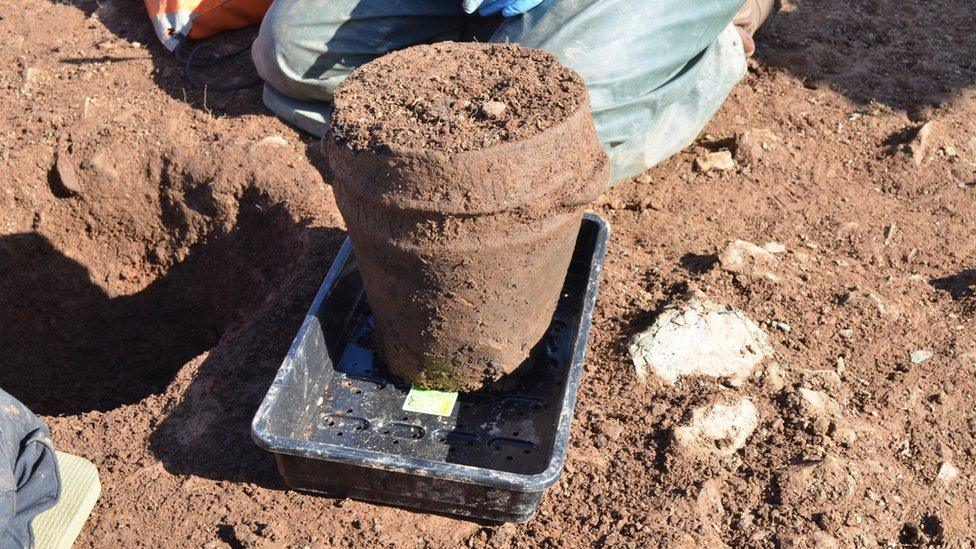Ancient findings in Cornwall uncovered during A30 road upgrade
- Published
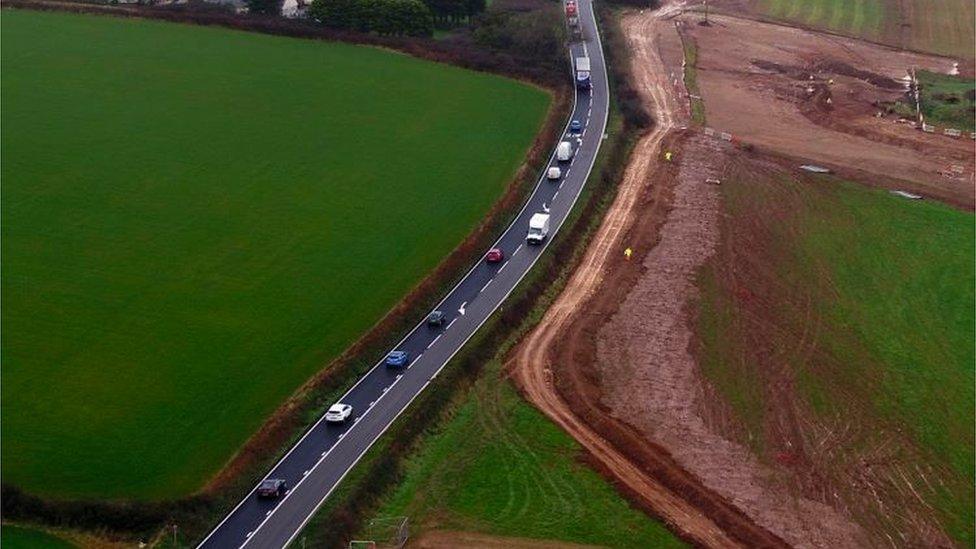
The A30 upgrade is being carried out between Chiverton and Carland Cross
A Roman road and a Bronze Age burial mound were among the uncovered after work on a road in Cornwall.
Work is being carried out to upgrade the A30 between Chiverton and Carland Cross.
Archaeological investigations have been completed in 16 separate areas as part of the upgrade, and findings span 10,000 years of Cornish history.
Councillor Martyn Alvey said the findings gave "real insight" into the past.
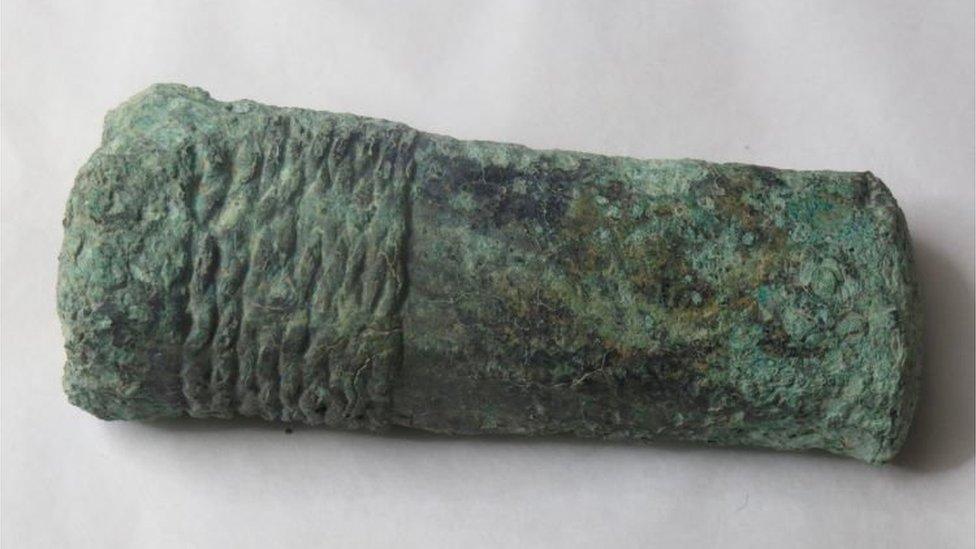
A stone mould for a bronze axe was found by the team
Flint tools and waste were found, marking an area where people had gathered for thousands of years to prepare tools from flint pebbles carried up from the north coast.
Cornwall Archaeological Unit unearthed different findings across about 10 miles (16.09 km) where the work has been taking place.
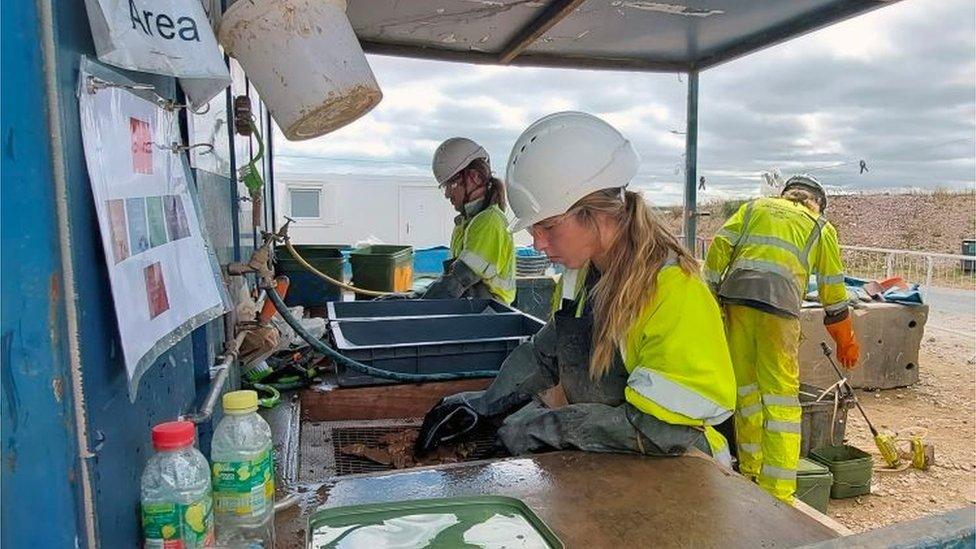
Items such as flint tools were found
Next to the Chybucca junction, the remains of 50 or so huts and a blacksmith's forge were uncovered. These were the remains of a United States Army base in use from 1943 up until D-Day in June 1944.
At Marazanvose, old sections of road were found with ditches either side to carry water away from the carriageway.
The investigations team believe the original road is likely to be Roman, or even earlier.
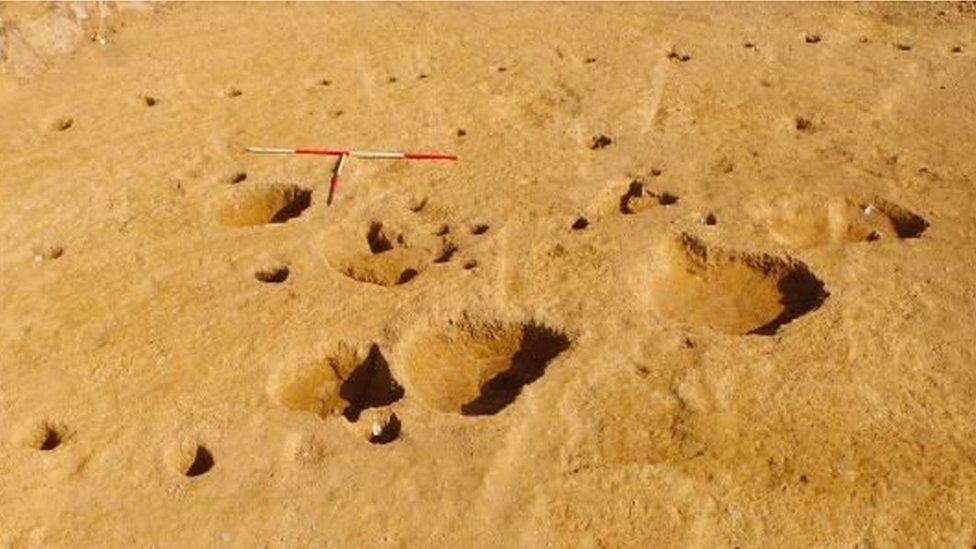
Postholes thought to represent structures used by the Neolithic hunter-gatherers were found as part of the investigation
Mr Alvey, Cornwall Council's cabinet member with responsibility for the archaeology service, said: "A major project such as the A30 improvements offers a wonderful opportunity to investigate a large area and uncover a huge period of Cornish history.
"As ever, the team has worked brilliantly to discover, identify and interpret a wealth of material which gives us a real insight into the way people lived across so many periods."

Follow BBC Cornwall on X (formerly Twitter), external, Facebook, external and Instagram, external. Send your story ideas to spotlight@bbc.co.uk, external.
Related topics
- Published26 April 2023
- Published17 April 2018
